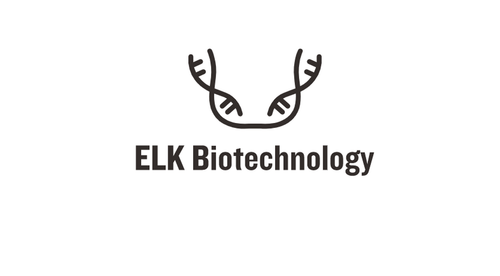Product Description
Human Neuregulin 1 isoform HRG-beta 1 (NRG1) ELISA Kit | AE63288HU | Abebio
Species Reactivity: Human (Homo sapiens)
Abbreviation: NRG1
Alternative Name: N/A
Application: ELISA
Range: 0.156-10 ng/mL
Sensitivity: 0.055 ng/mL
Intra-Assay: ≤5.6%
Inter-Assay: ≤10.9%
Recovery: 1, 08
Sample Type: Serum, Plasma, Other biological fluids
Detection Method: Sandwich
Analysis Method : Quantitive
Test Principale: This assay employs a two-site sandwich ELISA to quantitate NRG1 in samples. An antibody specific for NRG1 has been pre-coated onto a microplate. Standards and samples are pipetted into the wells and anyNRG1 present is bound by the immobilized antibody. After removing any unbound substances, a biotin-conjugated antibody specific for NRG1 is added to the wells. After washing, Streptavidin conjugated Horseradish Peroxidase (HRP) is added to the wells. Following a wash to remove any unbound avidin-enzyme reagent, a substrate solution is added to the wells and color develops in proportion to the amount of NRG1 bound in the initial step. The color development is stopped and the intensity of the color is measured.
Product Overview: Neuregulin 1 or NRG1 is one of the four proteins of the neuregulin family which act on EGFR family of receptors. Neuregulin 1 is produced in numerous isoforms by alternative splicing, and this allows it to perform a wide variety of functions. Neuregulin 1-ErbB4 interactions are thought to play a role in the pathological mechanism of schizophrenia. The protein also has a putative ability to protect the brain from damage induced by stroke.Neuregulin 1 (NRG1) was originally identified as a 44-kD glycoprotein that interacts with the NEU/ERBB2 receptor tyrosine kinase to increase its phosphorylation on tyrosine residues. It is known that an extraordinary variety of different isoforms are produced from the NRG1 gene by alternative splicing.
Stability: The stability of ELISA kit is determined by the loss rate of activity. The loss rate of this kit is less than 5% within the expiration date under appropriate storage condition. The loss rate was determined by accelerated thermal degradation test. Keep the kit at 37°C for 4 and 7 days, and compare O.D.values of the kit kept at 37°C with that of at recommended temperature. (referring from China Biological Products Standard, which was calculated by the Arrhenius equation. For ELISA kit, 4 days storage at 37°C can be considered as 6 months at 2 - 8°C, which means 7 days at 37°C equaling 12 months at 2 - 8°C) .
 Euro
Euro
 USD
USD
 British Pound
British Pound
 NULL
NULL












